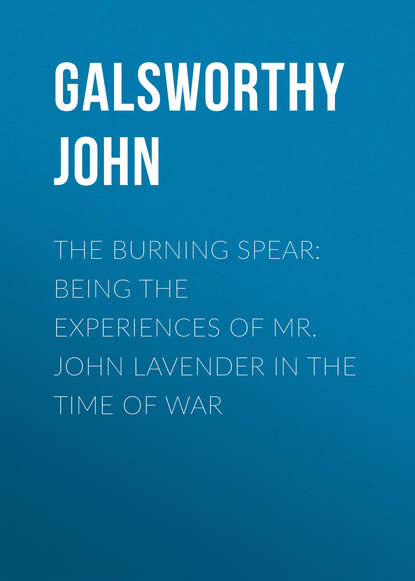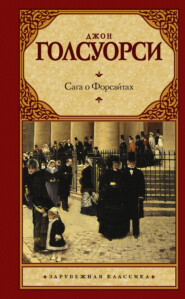По всем вопросам обращайтесь на: info@litportal.ru
(©) 2003-2025.
✖
The Burning Spear: Being the Experiences of Mr. John Lavender in the Time of War
Настройки чтения
Размер шрифта
Высота строк
Поля
But Blink, by anxiously licking Mr. Lavender’s lips, had produced a silence in which the young-lady did not dare reply. The sound of the little cat’s purring broke the hush.
“Down, Blink, down!” said Mr. Lavender.
“Watch this little moon-cat and her perfect manners! We may all learn from her how not to be crude. See the light shining through her pretty ears!”
The little cat, who had seen a bird, had left Mr. Lavender’s shoulder, and was now crouching and moving the tip of its tail from side to side.
“She would like a bird inside her; but let us rather go and find her some milk instead,” said Mr. Lavender, and he began to rise.
“Do you know, I think he’s quite sane,” whispered the old lady, “except, perhaps, at intervals. What do you?”
“Glorious print!” cried Mr. Lavender suddenly, for a journal had fallen from his pocket, and the sight of it lying there, out of his reach, excited him. “Glorious print! I can read you even from here. When the enemy of mankind uses the word God he commits blasphemy! How different from us!” And raising his eyes from the journal Mr. Lavender fastened them, as it seemed to his anxious listeners, on the tree which sheltered them. “Yes! Those unseen presences, who search out the workings of our heart, know that even the most Jingo among us can say, ‘I am not as they are!’ Come, mooncat!”
So murmuring, he turned and moved towards the house, clucking with his tongue, and followed by Blink.
“Did he mean us?” said the old lady nervously.
“No; that was one of his intervals. He’s not mad; he’s just crazy.”
“Is there any difference, my dear?”
“Why, we’re all crazy about something, you know; it’s only a question of what.”
“But what is his what?”
“He’s got a message. They’re in the air, you know.”
“I haven’t come across them,” said the old lady. “I fear I live a very quiet life – except for picking over sphagnum moss.”
“Oh, well! There’s no hurry.”
“Well, I shall tell my nephew what I’ve seen,” said the old lady. “Good-bye.”
“Good-bye,” responded the young; and, picking up her yellow book, she got back into the hammock and relighted her cigarette.
VII
SEES AND EDITOR, AND FINDS A FARMER
Not for some days after his fall from the window did Mr. Lavender begin to regain the elasticity of body necessary to the resumption of public life. He spent the hours profitably, however, in digesting the newspapers and storing ardour. On Tuesday morning, remembering that no proof of his interview had yet been sent him, and feeling that he ought not to neglect so important a matter, he set forth to the office of the great journal from which, in the occult fashion of the faithful, he was convinced the reporter had come. While he was asking for the editor in the stony entrance, a young man who was passing looked at him attentively and said: “Ah, sir, here you are! He’s waiting for you. Come up, will you?”
Mr. Lavender followed up some stairs, greatly gratified at the thought that he was expected. The young man led him through one or two swing doors into an outer office, where a young woman was typing.
Mr. Lavender shook his head, and sat down on the edge of a green leather chair. The editor, resuming his seat, crossed his legs deferentially, and sinking his chin again on his chest, began:
“About your article. My only trouble, of course, is that I’m running that stunt on British prisoners – great success! You’ve seen it, I suppose?”
“Yes, indeed,” said Mr. Lavender; I read you every day.
The editor made a little movement which showed that he was flattered, and sinking his chin still further into his chest, resumed:
“It might run another week, or it might fall down to-morrow – you never can tell. But I’m getting lots of letters. Tremendous public interest.”
“Yes, yes,” assented Mr. Lavender, “it’s most important.”
“Of course, we might run yours with it,” said the editor. “But I don’t know; I think it’d kill the other. Still – ”
“I shouldn’t like – ” began Mr. Lavender.
“I don’t believe in giving them more than they want, you know,” resumed the editor. “I think I’ll have my news editor in,” and he blew into a tube. “Send me Mr. Crackamup. This thing of yours is very important, sir. Suppose we began to run it on Thursday. Yes, I should think they’ll be tired of British prisoners by then.”
“Don’t let me,” began Mr. Lavender.
The editor’s eye became unveiled for the Moment. “You’ll be wanting to take it somewhere else if we – Quite! Well, I think we could run them together. See here, Mr. Crackamup” – Mr. Lavender saw a small man like Beethoven frowning from behind spectacles – “could we run this German prisoner stunt alongside the British, or d’you think it would kill it?”
Mr. Lavender almost rose from his chair in surprise. “Are you – ” he said; “is it – ”
The small man hiccoughed, and said in a raw voice:
“The letters are falling off.”
“Ah!” murmured the editor, “I thought we should be through by Thursday. We’ll start this new stunt Thursday. Give it all prominence, Crackamup. It’ll focus fury. All to the good – all to the good. Opinion’s ripe.” Then for a moment he seemed to hesitate, and his chin sank back on his chest. “I don’t know,” he murmured, “of course it may – ”
“Please,” began Mr. Lavender, rising, while the small man hiccoughed again. The two motions seemed to determine the editor.
“That’s all right, sir,” he said, rising also; “that’s quite all right. We’ll say Thursday, and risk it. Thursday, Crackamup.” And he held out his hand to Mr. Lavender. “Good morning, sir, good morning. Delighted to have seen you. You wouldn’t put your name to it? Well, well, it doesn’t matter; only you could have written it. The turn of phrase – immense! They’ll tumble all right!” And Mr. Lavender found himself, with Mr. Crackamup, in the lobby. “It’s bewildering,” he thought, “how quickly he settled that. And yet he had such repose. But is there some mistake?” He was about to ask his companion, but with a distant hiccough the small man had vanished. Thus deserted, Mr. Lavender was in two minds whether to ask to be readmitted, when the four gentlemen with notebooks repassed him in single file into the editor’s room.
“My name is Lavender,” he said resolutely to the young woman. “Is that all right?”
“Quite,” she answered, without looking up.
Mr. Lavender went out slowly, thinking, “I may perhaps have said more in that interview than I remember. Next time I really will insist on having a proof. Or have they taken me for some other public man?” This notion was so disagreeable, however, that he dismissed it, and passed into the street.
On Thursday, the day fixed for his fresh tour of public speaking, he opened the great journal eagerly. Above the third column was the headline: OUR VITAL DUTY: BY A GREAT PUBLIC MAN. “That must be it,” he thought. The article, which occupied just a column of precious space, began with an appeal so moving that before he had read twenty lines Mr. Lavender had identified himself completely with the writer; and if anyone had told him that he had not uttered these sentiments, he would have given him the lie direct. Working from heat to heat the article finished in a glorious outburst with a passionate appeal to the country to starve all German prisoners.
Mr. Lavender put it down in a glow of exultation. “I shall translate words into action,” he thought; “I shall at once visit a rural district where German prisoners are working on the land, and see that the farmers do their duty.” And, forgetting in his excitement to eat his breakfast, he put the journal in his pocket, wrapped himself in his dust-coat and broad-brimmed hat, and went out to his car, which was drawn up, with Blink, who had not forgotten her last experience, inside.
“We will go to a rural district, Joe,” he said, getting in.
“Very good, sir,” answered Joe; and, unnoticed by the population, they glided into the hazy heat of the June morning.
“Well, what abaht it, sir?” said Joe, after they had proceeded for some three hours. “Here we are.”
Mr. Lavender, who had been lost in the beauty of the scenes through which he was passing, awoke from reverie, and said:
“I am looking for German prisoners, Joe; if you see a farmer, you might stop.”
“Any sort of farmer?” asked Joe.
“Down, Blink, down!” said Mr. Lavender.
“Watch this little moon-cat and her perfect manners! We may all learn from her how not to be crude. See the light shining through her pretty ears!”
The little cat, who had seen a bird, had left Mr. Lavender’s shoulder, and was now crouching and moving the tip of its tail from side to side.
“She would like a bird inside her; but let us rather go and find her some milk instead,” said Mr. Lavender, and he began to rise.
“Do you know, I think he’s quite sane,” whispered the old lady, “except, perhaps, at intervals. What do you?”
“Glorious print!” cried Mr. Lavender suddenly, for a journal had fallen from his pocket, and the sight of it lying there, out of his reach, excited him. “Glorious print! I can read you even from here. When the enemy of mankind uses the word God he commits blasphemy! How different from us!” And raising his eyes from the journal Mr. Lavender fastened them, as it seemed to his anxious listeners, on the tree which sheltered them. “Yes! Those unseen presences, who search out the workings of our heart, know that even the most Jingo among us can say, ‘I am not as they are!’ Come, mooncat!”
So murmuring, he turned and moved towards the house, clucking with his tongue, and followed by Blink.
“Did he mean us?” said the old lady nervously.
“No; that was one of his intervals. He’s not mad; he’s just crazy.”
“Is there any difference, my dear?”
“Why, we’re all crazy about something, you know; it’s only a question of what.”
“But what is his what?”
“He’s got a message. They’re in the air, you know.”
“I haven’t come across them,” said the old lady. “I fear I live a very quiet life – except for picking over sphagnum moss.”
“Oh, well! There’s no hurry.”
“Well, I shall tell my nephew what I’ve seen,” said the old lady. “Good-bye.”
“Good-bye,” responded the young; and, picking up her yellow book, she got back into the hammock and relighted her cigarette.
VII
SEES AND EDITOR, AND FINDS A FARMER
Not for some days after his fall from the window did Mr. Lavender begin to regain the elasticity of body necessary to the resumption of public life. He spent the hours profitably, however, in digesting the newspapers and storing ardour. On Tuesday morning, remembering that no proof of his interview had yet been sent him, and feeling that he ought not to neglect so important a matter, he set forth to the office of the great journal from which, in the occult fashion of the faithful, he was convinced the reporter had come. While he was asking for the editor in the stony entrance, a young man who was passing looked at him attentively and said: “Ah, sir, here you are! He’s waiting for you. Come up, will you?”
Mr. Lavender followed up some stairs, greatly gratified at the thought that he was expected. The young man led him through one or two swing doors into an outer office, where a young woman was typing.
Mr. Lavender shook his head, and sat down on the edge of a green leather chair. The editor, resuming his seat, crossed his legs deferentially, and sinking his chin again on his chest, began:
“About your article. My only trouble, of course, is that I’m running that stunt on British prisoners – great success! You’ve seen it, I suppose?”
“Yes, indeed,” said Mr. Lavender; I read you every day.
The editor made a little movement which showed that he was flattered, and sinking his chin still further into his chest, resumed:
“It might run another week, or it might fall down to-morrow – you never can tell. But I’m getting lots of letters. Tremendous public interest.”
“Yes, yes,” assented Mr. Lavender, “it’s most important.”
“Of course, we might run yours with it,” said the editor. “But I don’t know; I think it’d kill the other. Still – ”
“I shouldn’t like – ” began Mr. Lavender.
“I don’t believe in giving them more than they want, you know,” resumed the editor. “I think I’ll have my news editor in,” and he blew into a tube. “Send me Mr. Crackamup. This thing of yours is very important, sir. Suppose we began to run it on Thursday. Yes, I should think they’ll be tired of British prisoners by then.”
“Don’t let me,” began Mr. Lavender.
The editor’s eye became unveiled for the Moment. “You’ll be wanting to take it somewhere else if we – Quite! Well, I think we could run them together. See here, Mr. Crackamup” – Mr. Lavender saw a small man like Beethoven frowning from behind spectacles – “could we run this German prisoner stunt alongside the British, or d’you think it would kill it?”
Mr. Lavender almost rose from his chair in surprise. “Are you – ” he said; “is it – ”
The small man hiccoughed, and said in a raw voice:
“The letters are falling off.”
“Ah!” murmured the editor, “I thought we should be through by Thursday. We’ll start this new stunt Thursday. Give it all prominence, Crackamup. It’ll focus fury. All to the good – all to the good. Opinion’s ripe.” Then for a moment he seemed to hesitate, and his chin sank back on his chest. “I don’t know,” he murmured, “of course it may – ”
“Please,” began Mr. Lavender, rising, while the small man hiccoughed again. The two motions seemed to determine the editor.
“That’s all right, sir,” he said, rising also; “that’s quite all right. We’ll say Thursday, and risk it. Thursday, Crackamup.” And he held out his hand to Mr. Lavender. “Good morning, sir, good morning. Delighted to have seen you. You wouldn’t put your name to it? Well, well, it doesn’t matter; only you could have written it. The turn of phrase – immense! They’ll tumble all right!” And Mr. Lavender found himself, with Mr. Crackamup, in the lobby. “It’s bewildering,” he thought, “how quickly he settled that. And yet he had such repose. But is there some mistake?” He was about to ask his companion, but with a distant hiccough the small man had vanished. Thus deserted, Mr. Lavender was in two minds whether to ask to be readmitted, when the four gentlemen with notebooks repassed him in single file into the editor’s room.
“My name is Lavender,” he said resolutely to the young woman. “Is that all right?”
“Quite,” she answered, without looking up.
Mr. Lavender went out slowly, thinking, “I may perhaps have said more in that interview than I remember. Next time I really will insist on having a proof. Or have they taken me for some other public man?” This notion was so disagreeable, however, that he dismissed it, and passed into the street.
On Thursday, the day fixed for his fresh tour of public speaking, he opened the great journal eagerly. Above the third column was the headline: OUR VITAL DUTY: BY A GREAT PUBLIC MAN. “That must be it,” he thought. The article, which occupied just a column of precious space, began with an appeal so moving that before he had read twenty lines Mr. Lavender had identified himself completely with the writer; and if anyone had told him that he had not uttered these sentiments, he would have given him the lie direct. Working from heat to heat the article finished in a glorious outburst with a passionate appeal to the country to starve all German prisoners.
Mr. Lavender put it down in a glow of exultation. “I shall translate words into action,” he thought; “I shall at once visit a rural district where German prisoners are working on the land, and see that the farmers do their duty.” And, forgetting in his excitement to eat his breakfast, he put the journal in his pocket, wrapped himself in his dust-coat and broad-brimmed hat, and went out to his car, which was drawn up, with Blink, who had not forgotten her last experience, inside.
“We will go to a rural district, Joe,” he said, getting in.
“Very good, sir,” answered Joe; and, unnoticed by the population, they glided into the hazy heat of the June morning.
“Well, what abaht it, sir?” said Joe, after they had proceeded for some three hours. “Here we are.”
Mr. Lavender, who had been lost in the beauty of the scenes through which he was passing, awoke from reverie, and said:
“I am looking for German prisoners, Joe; if you see a farmer, you might stop.”
“Any sort of farmer?” asked Joe.

















